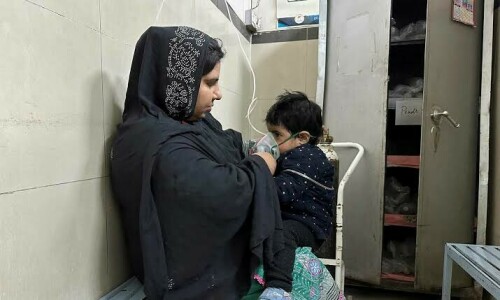LAHORE: Punjab Assembly’s Standing Committee on Education Chairman Qamarul Islam Raja has said a bill will be introduced in the next session of the legislature to regulate private educational institutes in the province.
He was addressing as a chief guest at the launch ceremony of ‘education monitor’ and a discussion on ‘The state and private sector in education: quality, scale and regulation’ organised by the Society for Advancement of Education (SAHE) and Campaign for Quality Education (CQE) in collaboration with Open Society Foundation on Tuesday.
Raja said education was priority of the present regime as was evident from a record increase in allocations for the education sector, which were around 27pc of the total financial outlay for the 2015-16 fiscal plan.
“Now, every bill pertaining to education is discussed thoroughly in the meetings of the standing committee before being presented to the Punjab Assembly. Recently, the committee entirely re-drafted the bill regarding higher education even though it was approved by the chief minister and the cabinet,” he added.
SAHE Chairman Abbas Rashid explained to the participants the key challenges plaguing education in the country. The public sector does not have the capacity to meet the challenge posed by Article 25 of the Constitution and ensure universal access to quality education.
“Currently, enrollment in the private sector accounts for 37pc of enrollment in all educational institutes across the country. The quality of public schools has a direct effect on private sector institutes. However, improvements in the private schools’ performance are being hampered by a low expectations approach, which is a result of comparing private schools with low-performing government schools,” he said.
Terming the current practices of regulation of private schools largely ineffective and not protecting the legitimate interests of consumers of private education, the standing committee chairman said most attempts to regulate teachers’ salaries, fee, curriculum and infrastructure had not been successful as the existing command and control model was failing.
The UK’s Department for International Development (DFID) representative Javaid Malik proposed that the Punjab Education Department be responsible for ensuring education for all in both public and private sectors.
Salman Hamayun of Institute of Social and Policy Sciences said lack of will to enforce existing regulations was the root cause of all ills in the education sector.
“In Punjab, there are 5,000 schools each with only one teacher while another 18,000 schools were being run by two teachers each. Under these circumstances, how can one deliver?” he asked.
Schools Education Department’s Deputy Secretary Qaiser Rashid said the norm of one-teacher, one-school had changed. Every new school would now have teachers for at least four subjects.
Published in Dawn, June 24th, 2015
On a mobile phone? Get the Dawn Mobile App: Apple Store | Google Play











































Dear visitor, the comments section is undergoing an overhaul and will return soon.